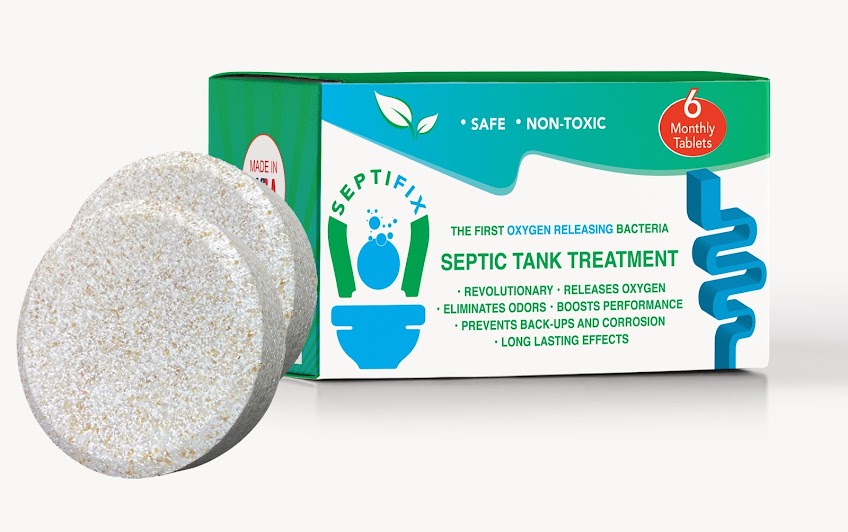Should Bath Or Shower Water Drain Into Your Septic Tank?
When we take a bath or shower, we do not think if this bath/shower water should go into the septic tank. Have you ever thought about what happens in the septic tank after all this water gets into it? In this article, we will find out what happens to the bath/shower water as it goes into the septic tank, how much water the tank can handle, and how to ensure that the septic tank or system does not collapse.
So, should bath/shower water go into the septic tank? The answer is Yes! As all drains in a home converge to one pipe & this pipe goes to the septic tank. However, a septic tank has a limited capacity. If there is overload with excess water, it can lead to septic failure.
So, the question is how much water is too much? Keep reading to know about what causes septic tank overload, the signs of overload, what should not go into the septic tank, problems a septic tank can have, and a lot more.

What Happens To Bath/Shower Water After It Goes Into The Septic System?
Drains in our home lead to one pipe. These drains include all the drains which are connected to the dishwater, sinks, toilet, washing machine, and shower drain. Now in this single pipe, the wastewater comes together. This water goes to the septic system.
In the septic system, the good bacteria in the tank break down all organic materials. So, yes in most homes the shower/bathwater gets into the septic tank. But it does not get into the tank in totality.
Wastewater and shower water get together from various sources and then they flow to the system.
The septic tank is designed to treat only domestic sewage & wastewater. In the septic tank, bacteria break down contents, so it is necessary to ensure that nothing enters the tank which hampers the process.
What Should Not Enter The Septic Tank
• Detergents – There are a few detergents that contain phosphates. Phosphates do not break down in the tank. It can cause problems in the tank. List of septic safe laundry and dishwashing detergents.
• Products That Don’t Breakdown – If the shower water carries waste, like toilet paper, sanitary waste or even cotton buds, they won’t breakdown in the septic tank. The tank can malfunction. List of items you shouldn’t throw in your septic tank.
• Too Much Water – If the septic tank gets too much water, much beyond its capacity and all at once, it can cause overflowing. Overloading can be harmful to the septic tank. Best Toilets, garbage disposals, and Dishwasher machines for Septic use.
What Will Happen If The Septic Tanks is Overloaded with Shower/Bath Water?
If there is excessive water usage in a home, it all drains into the septic tank. Suppose there is a large party at home and everyone is taking a shower in the bathrooms, there is an enormous drain of water in a short time.
When can there be an overload of septic tank?
- More people are using the bath in a short span of time. The septic tank does not get enough time to empty itself.
- The toilet is running continuously, maybe due to a malfunction. It can mean an extra addition of water like never before.
- Flushing products like diapers, paper towels, or napkins can take up space in the septic tank. It does not have additional space for waste.
If too much bath/shower water goes into the septic tank and in a short time, it can cause problems like slow draining. This slowly leads to septic system failure.
Problems can arise in the form of:
- Dirty water moving up
- Extremely strong odor that does not go away
- Continuous gurgling sound of water
- Slow draining of water
So, the question arises –
How Much Bath/Shower Water in Septic Tank Causes Overloading?
In any household, an individual uses approximately 60-70 gallons of water in a day. The domestic tanks are designed assuming that there will be two people in every bedroom.
Thus, any septic tank can handle around 1200 gallons/bedroom every day. The size of the septic tank depends on the nature of the house or building. It also depends on the number of people who live, number of bedrooms and more. Any reliable septic system provider can help with this.
Thus, if the daily volume of water that enters the tank exceeds this volume, there is a chance of overloading. This overloading of bath/shower water can cause immense harm to the septic system and cause its failure.
How Can You Prevent Septic Tank Overload Due to Bath/Shower Water?
Homeowners should ideally adopt some practices which will help in reducing the water wastage and reduce the chances of damage of the septic system.
- Control Your Laundry – Control your clothes cleaning so that water wastage is prevented. Clean clothes regularly so that there is no overload during the weekend.
- Reduce Shower Water Wastage – Any individual is known to use around 16 gallons of water daily during shower. To reduce pressure on the septic tank, shorter shower times are suggested.
- Reduce the Water You Flush – Toilets use the maximum water daily. To reduce this, use the toilet several times and then flush, which will reduce wastage. Do not dispose tissues in the toilet so that you do not have to continuously flush the toilet.
- Reduce the Bath Time – If you spend a lot of time in shower, reduce it. The lesser time you spend, the lesser will be the burden on the septic tank.
How Can You Prevent Damage to Septic System Due to Shower/Bath Water?
- Do not allow excess water into the septic system all at once.
- Ensure that your toilet is efficient and there is no leakage or running toilet
- The toilet should not be a garbage disposal unit
- Do not flush down excessive soapy water
- Do not flush greasy or oily substances
- Do not wash all clothes at once
- Try and reduce your time under the shower
Related Questions to Bath/Shower Water Going to Septic Tank
Does the bath/shower water go into the septic tank always in all homes?
Yes, only when you have a septic system and there is no gray water line. Those who live in a city, have all the sink water, water from washing machine & toilet water go into the sewer system.
Those who reside in a small town and have a septic system, will have all the bath/shower water go in the septic tank.
Why do I hear a gurgling sound when the shower water goes down the drain?
If you hear a gurgling sound when the shower/bath water goes, it means there is clogging in the drain. It is also an indication that the septic system has a problem.
Why does my Bath/Shower water back up?
If there is a problem in the septic system, your bath/shower water will back up. If the drain is clogged, the water does not drain well. It gets back to the bathroom.
Why is excess bath/shower water going to the septic tank bad for it?
Septic tanks have a capacity beyond which they cannot hold. There is a need to pump them so that they empty. If it exceeds the capacity, there will be malfunctioning of the system.
How often should the septic tank be emptied?
Ideally, the septic tank should be emptied once every two to three years. However, this is again dependent on the number of people using it, the age of the system, and more. Read our article on signs your septic system needs to be pumped.
To summarize everything said above, we can say that bath/shower water should not go into the septic system. Only the solid waste should go to the system or else the water will fill the tank completely and cause its collapse.
Sources
Sources:
https://www.petesoutflow.com/how-excessive-water-affects-your-septic-tank-and-what-to-do
https://www.paradisevalleyseptic.com/how-much-water-can-a-septic-system-handle-each-day/
https://www.paradisevalleyseptic.com/does-shower-water-go-into-your-septic-system/
https://www.mrrooter.com/oneida/about-us/blog/2017/october/how-to-keep-your-septic-system-healthy/










